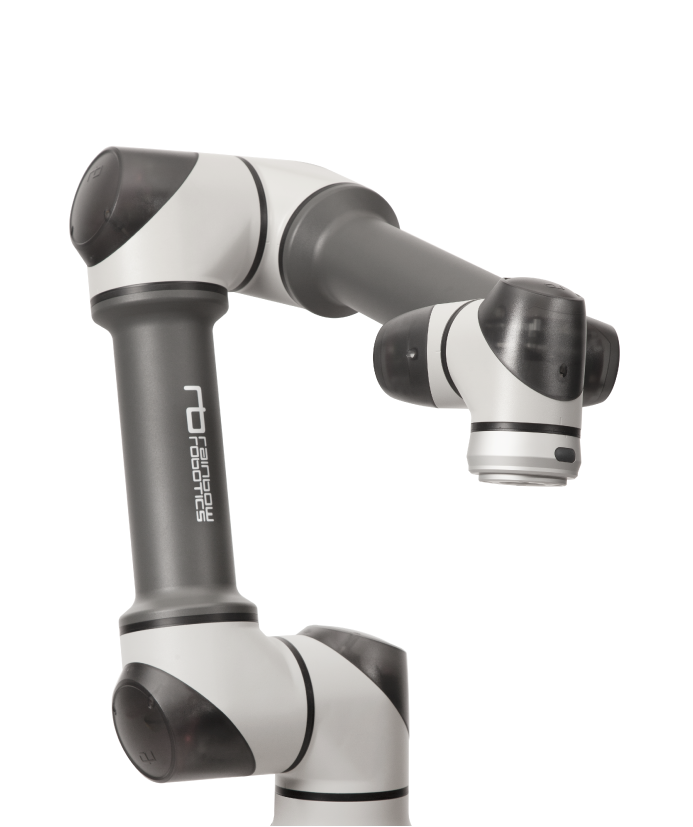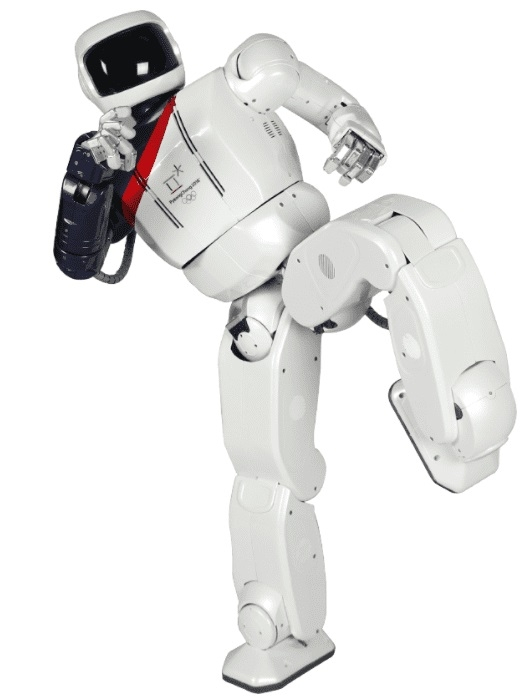Robotics
Samsung Elec to invest $46 mn in S.Korean robot maker
Rainbow Robotics' shares surge as Samsung selects it for the tech giant’s first investment in a listed robot maker for future growth
By Jan 03, 2023 (Gmt+09:00)
2
Min read
Most Read
LG Chem to sell water filter business to Glenwood PE for $692 million


Kyobo Life poised to buy Japan’s SBI Group-owned savings bank


KT&G eyes overseas M&A after rejecting activist fund's offer


StockX in merger talks with Naver’s online reseller Kream


Mirae Asset to be named Korea Post’s core real estate fund operator



Samsung Electronics Co., the world’s largest memory chip and smartphone maker, is set to invest 59 billion won ($46.4 million) in South Korean robot maker Rainbow Robotics as the tech giant seeks future growth engines from the industry.
Rainbow said on Tuesday in a regulatory filing that it decided to sell 1.94 million new shares, which will be listed on Jan. 20, to Samsung at 30,400 won per share. The deal will allow Samsung to hold a 10.3% stake in the collaborative robot maker.
Shares in Rainbow surged 27.45% to close at 41,550 won after the announcement, far outperforming a 0.51% gain in the country’s tech-heavy Kosdaq.
Rainbow was the first listed robot company that secured an investment from Samsung. The South Korean tech behemoth has been focusing its investment on semiconductor-related companies such as Wonik IPS Co., Dongjin Semichem Co. and Soulbrain Co.
Samsung has been nurturing the robotics business since 2020 as it saw the sector as a key to the company’s future. The company in early 2021 launched a task force for the business and expanded it into a team last year.
COLLABORATIVE ROBOTS
Rainbow was founded in 2011 at the Humanoid Robot Research Center of the Korea Advanced Institution of Science and Technology, one of the country’s most prestigious universities.
The company accelerated its business in 2020 with its flagship product – collaborative robots. They operate by human instructions at close range, while the existing industrial robots replace human work.
Collaborative robots are intended for direct human-robot interaction within a shared space, or where humans and robots are in close proximity. Those robots are getting more advanced with artificial intelligence and big data.
The global collaborative robot market is expected to increase by an annual average growth of 43.5% to $5.1 billion by 2025 from $836.2 million in 2020, according to the Korea Institute of Science and Technology Information.
The market is dominated by Danish Universal Robots with a market share of more than 50%. In South Korea, units of major conglomerates such as Doosan Robotics Inc., Hyundai Robotics Co. and Hanwha Precision Machinery Co. are also working on the business.
Rainbow is looking to expand its business into overseas markets as it secured competitiveness with its own parts such as actuators, brakes and controllers.
The company is developing other products such as quadruped walking robots, bipedal platforms and autonomous mobile robots. It has been working with Hyundai Rotem Co., Hyundai Motor Group’s defense maker, to develop multi-legged robots for military purposes since last year.

Rainbow aims to post its first annual profit last year with a total operating profit of 1.2 billion won in the first three quarters of 2022. The company raised 26.5 billion won through an initial public offering in 2021 and an additional 25 billion won through convertible bonds and a rights offering.
Write to Seok-Cheol Choi at dolsoi@hankyung.com
Jongwoo Cheon edited this article.
More to Read
-
 RoboticsHyundai Robotics, Vodafone to provide service robots in Germany
RoboticsHyundai Robotics, Vodafone to provide service robots in GermanyMay 31, 2022 (Gmt+09:00)
2 Min read -
 Corporate strategySamsung looks to metaverse, robots for future growth
Corporate strategySamsung looks to metaverse, robots for future growthMar 16, 2022 (Gmt+09:00)
3 Min read -

-
 Corporate restructuringSamsung launches merged set division as DX; robotics new growth driver
Corporate restructuringSamsung launches merged set division as DX; robotics new growth driverDec 12, 2021 (Gmt+09:00)
4 Min read -
 Hyundai Robotics, KFC team up to make chicken-frying robot chefs
Hyundai Robotics, KFC team up to make chicken-frying robot chefsOct 23, 2020 (Gmt+09:00)
2 Min read
Comment 0
LOG IN


